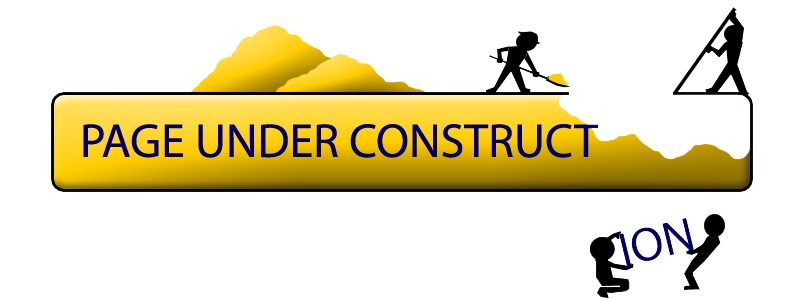Aggregation vs Federation
This page is still under construction.
In Information technology, the whole Aggregation / Federation (and data hubs) are a huge area of discussion and contention. It is really important to consider Healthcare Information specifically - it is not the same as banking information or retail information! I often hear technical discussions where non-Healthcare IT/IS professionals delare things like, "you're so backward in medical or weve been doing this for years".
Treatment of information needs to be considered in the context of who it is for: by which I mean, who is benefiting from the information. Banking and retail sectors drive their information to feed their profitability. Profitability is not the direct driver for Healthcare information. I say directly, because Profitability can be seen as an indirect measure of efficiency when using economic measures. But the main drivers for Healthcare information should be Healthy People - right?
Reasons Why Healthcare Data is Different
Almost each of these areas could be a topic of discussion or a short whitepaper in themselves - but the brief descriptions show why this is such a complicated area. These are not exhaustive treatise, but illustrative points.
Confidentiality in general
If you are rushed into hospital, it is fair to assume you would wish any medical professional directly involved in your care to have access to the latest relevant healthcare records. Seems like a simple statement, but what is relevant - if you have a cut arm, is your mental health record relevant? Actually probably yes - and yet mental health records are the most difficult and sensitive things to share.
Privacy
Imagine you have a skin complaint, your problem needs expert opinion and needs to be shared with a specialist out of town. You may be happy for the medical professional to view images of your problem in the privacy of their office, but not on their mobile phone on the bus on the way home.
Share to help all?
Are you happy with the right safeguards, for your information to be shared to help with your Healthcare? Probably yes. Do you want your personal information to be used to help others? Maybe yes. Is it ok to send this out to private organisations to analyse? Is it ok to sell it on to raise money for Healthcare in general?? Type in NHS selling data into your favourite search engine and enjoy the results.
What is meaningful?
As records build up over time, it can be useful to compare a history of measures; blood pressure, cholesterol, insulin ... Unfortunately, different systems can store these values in different ways (don't get me started on effective dose and radiation). How to make a normalised historic view of data, and one that a software provider will sign up to as being correct? Also, how to compare this to normal ranges (and what is normal anyway)?
Identification
Who are the patients? How are they identified? The NHS Number is getting better, but it is not ubiquitous. And how are the professionals accessing our records identified (normally through a systems login of an individual system) - can they see everything they need without bringing it all into one system?
You can see strong themes in these examples
- Privacy and consent
- Purpose of use
- Measure and accuracy
all of these themes have particular relevance in Healthcare that set them asside from the run-of-the-mill experience in Information Systems. They are all about what to share and under what circumstances, and they have a hugh bearing on the Aggregation vs Federation discussion.
Why is Federation vs Aggregation even a question?
Healthcare systems exist to serve the specialities and practices of Healthcare professionals in Healthcare organisations.
This is a strong statement, but in essence, since Healthcare Providers are the ones who pay for these systems it is largely correct. Certainly in the western world you see systems deployed in Healthcare that reflect the use of the organisations funding them.
GP systems, Radiology Systems (there are two systems here through an accident of developmental history), Pathology systems - and Lab systems, Emergency or A&E systems, Ambulance service management, Social care systems, Mental Care systems, Ordering systems, Patient Administration System, Electronic Health Record system ... to name but a few.
To pull information together to have a holistic view of a patient or person takes on one of two forms. Trying the integrate (or work interoperably) between multiple systems - to federate. Or trying to pull all the information into one place - to aggregate.
On first viewing, the concept of somehow getting a holistic federated view seems the most logical approach. This is essentially a problem of linking information together. It would seem there isn't really a question here and federation is the way. But there are a couple of economic reasons for aggregation that cannot be ignored.
Consolidated purchase of storage and infrastructure
A relatively recent phenomenon in Medical Imaging is a great example of the consolidation argument, the VNA (Vendor Neutral Archive). This arose from the difficulty Healthcare Providers had in changing suppliers of one Radiology System to another where huge qualities of image data had to be migrated from the old to the new system. This became such an undertaking that customers became locked into their existing suppliers. The VNA concept is simple, consolidate your storage into one place in an "open accessible" format - then you can leave the data in place (forget the migration problem) and switch suppliers more easily. Consolidation of purchasing of storage for large data qualities is a great idea - you get great savings when you can buy in bulk - but this whole VNA argument is a classic deferral of the problem: VNAs have vendors - and who has tried to migrate or move the even larger quantities of data in a consolidated VNA? Is that not the mother of al lock vendor lock-ins?
This example is great. The consolidation of purchasing is for sure advantageous (cheaper overall). But it will always lead to a reliance on the systems provider that needs careful management.
Normalisation
This really seems to be an argument that is, on the surface, beneficial to the patient or person. Holding a normalised record for a patient allows Healthcare Providers to give more accurate, even personalised care. Taking on this job of providing a normalised record is taking on the responsibility for accuracy. To do so, most systems suppliers want to control the data - to make their own validated authorised copy of the various data elements. It is understandable from the point of view that if the supplier company is to be held liable for the accuracy of the data, they will want to be in charge of the process of bringing that data into use in the system. Suppliers will argue (rightly) that they will want to take and keep their own copy of the data. Of course this has the benefit to the supplier that they have a contract to manage important data on behalf of the Healthcare provider. For manage read, service contract and dollars/pounds.
This is really an exercise in balancing Transfer of Risk/Liability and outsourcing data curation.


